
What is Epoxy Resin and its usage in Electrical Devices
Introduction to Epoxy Resin
Epoxy resin is a type of synthetic polymer that is commonly used as an adhesive, coating, and composite material. Epoxy resin comes in two forms: single-component and two-component. Single-component epoxy is suitable for bonding motor ferrite with its core, while two-component epoxy is ideal for filling, sealing, bonding, or repairing metal parts in automobiles, working engines, and equipment. It sets within 5-10 minutes and cures completely on metal surfaces within an hour. It can also be used on various materials such as wood, glass, rocks, ceramic, plastic, etc., but not on difficult-to-bond surfaces.
Two-component epoxy resin
Epoxy resin is known for its excellent adhesive properties and can bond to a variety of materials, including metals, plastics. It is also resistant to moisture, chemicals, and heat, making it ideal for use in a wide range of applications, including electronics, and automotive industries, electricals.
Overall, epoxy resin is a versatile material that has a wide range of uses in many different industries. Its strength, durability, and resistance to a variety of factors make it a popular choice for many applications.
The Different Types of Epoxy Resin
There are several different types of epoxy resin available, each with its own unique properties and intended uses. Here are some of the most common types of epoxy resin:
Single component epoxy resin:
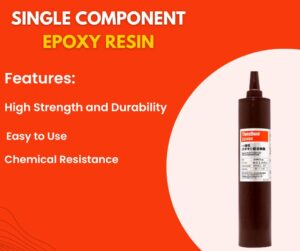 Single component epoxy resin is a type of adhesive that consists of a single pre-mixed component, which is ready to use without the need for additional mixing. It is a thermosetting polymer that can be cured with the application of heat. These epoxy resins are highly versatile and are commonly used in the manufacturing of electrical devices, including electrical vehicle devices, due to their excellent mechanical and electrical properties.
Single component epoxy resin is a type of adhesive that consists of a single pre-mixed component, which is ready to use without the need for additional mixing. It is a thermosetting polymer that can be cured with the application of heat. These epoxy resins are highly versatile and are commonly used in the manufacturing of electrical devices, including electrical vehicle devices, due to their excellent mechanical and electrical properties.
In the context of electrical vehicle devices, single component epoxy resins are used in a variety of applications, such as:
Bonding and sealing: Single component epoxy resins are also used to bond and seal electrical components, such as motors and batteries, to prevent the ingress of moisture and other contaminants.
Coating: These resins are used as a protective coating for printed circuit boards (PCBs) and other electrical components to protect them from corrosion and other forms of damage.
Overall, single component epoxy resins are an essential material for the manufacturing of electrical vehicle devices. Their excellent mechanical and electrical properties, as well as their ability to protect electronic components from environmental factors, make them an ideal choice for a wide range of applications.
General purpose epoxy resin: This is the most common type of epoxy resin and is used for a wide range of applications, including adhesives, coatings, and composite materials. It is versatile and easy to work with, and can be used on a variety of surfaces.
High-performance epoxy resin: This type of epoxy resin is designed for use in applications that require high strength, durability, and chemical resistance. It is commonly used in the aerospace, marine, and automotive industries, as well as for structural applications.
Casting epoxy resin: This type of epoxy resin is specifically designed for casting, molding, and embedding. It is typically a thicker viscosity than other types of epoxy resin, allowing it to be poured and molded without running.
UV-resistant epoxy resin: This type of epoxy resin is formulated to resist yellowing and degradation when exposed to sunlight and UV radiation. It is commonly used in applications such as outdoor coatings and art pieces.
Water-clear epoxy resin: This type of epoxy resin is designed to remain clear and transparent after curing, making it ideal for use in applications such as jewelry making and art pieces.
Food-grade epoxy resin: This type of epoxy resin is safe for use in contact with food and is commonly used to coat kitchen countertops and cutting boards.
It’s important to choose the right type of epoxy resin for your specific application to ensure the best results. Always read the product labels and instructions carefully and use appropriate safety gear when working with epoxy resin. But here we will discuss epoxy resin for vehicle electrical devices.
Related Articles: Understanding Adhesives and Sealants
How to Use Epoxy Resin for vehicle electrical devices
Epoxy resin can be used for various electrical applications in vehicles, such as insulating and protecting electrical devices, wiring and circuit boards. Here are the general steps to follow when using epoxy resin for vehicle electrical devices:
Prepare the surface: Clean the surface where you will be applying the epoxy resin to remove any dirt, grease or debris. You may also need to roughen the surface to ensure better adhesion.
Mix the epoxy resin: Follow the instructions on the product label to mix the epoxy resin and hardener in the correct proportions. Use a clean, dry container and mix thoroughly for the best results.
Apply the epoxy resin: Apply the mixed epoxy resin onto the surface you want to insulate or protect. You can use a brush or a syringe to apply the resin to hard-to-reach areas.
Allow the epoxy resin to cure: Let the epoxy resin cure for the recommended time before handling or installing the electrical device. The curing time will vary depending on the product, but it is usually between 24 and 72 hours.
Check the insulation: Once the epoxy resin is cured, check to ensure that the electrical device is properly insulated and protected from moisture, heat, and other environmental factors.
It’s important to note that epoxy resin should only be used for electrical devices that can tolerate high temperatures and are not sensitive to chemical exposure. Before applying epoxy resin epoxy resin for vehicle, make sure to read and follow the product instructions carefully to ensure safe and effective use.
Safety Precautions When Using Epoxy Resin for vehicle electrical devices

When working with epoxy resin for vehicle electrical devices, there are several safety precautions that you should take to ensure your health and safety. Here are some guidelines to follow:
Use proper protective gear: Wear gloves, eye protection, and a respirator or mask to avoid inhaling the resin fumes.
Work in a well-ventilated area: Epoxy resin can release harmful fumes, so it’s important to work in a well-ventilated area. If you’re working indoors, make sure you have an open window or use a fan to circulate the air.
Keep the resin away from heat sources: Epoxy resin can be highly flammable and may catch fire when exposed to heat sources such as flames or sparks. Keep the resin away from these sources of heat.
Follow manufacturer’s instructions: Make sure to read and follow the manufacturer’s instructions carefully, as each epoxy resin product can have its own set of safety precautions.
Avoid skin contact: Epoxy resin can be harmful to skin, so it’s important to avoid skin contact. If you do get resin on your skin, wash it off immediately with soap and water.
Dispose of resin properly: Dispose of any unused resin properly, according to local regulations. Do not pour resin down the drain or into the trash.
By following these safety precautions, you can ensure that you work with epoxy resin safely and avoid any potential harm to yourself or others.
Advantages of using epoxy resin in vehicle electrical devices
There are several advantages to using epoxy resin for vehicle electrical devices. These include:
Electrical insulation: Epoxy resin is an excellent electrical insulator, which is essential for protecting sensitive electrical components from short-circuits, electrical noise, and other electrical interference. The resin also prevents damage from moisture and other environmental factors that can cause electrical failure.

Chemical resistance: Epoxy resin is highly resistant to many types of chemicals, including gasoline, oil, and other automotive fluids. This makes it an ideal choice for protecting electrical devices in the harsh automotive environment.
High temperature resistance: Epoxy resin can withstand high temperatures without degrading or losing its electrical insulation properties. This is important for automotive applications where electrical components are exposed to high temperatures.
Easy to use: Epoxy resin can be applied easily using a variety of application methods, including potting, encapsulation, and conformal coating. This allows for the protection of a wide range of electrical devices in a variety of shapes and sizes.
Durable: Epoxy resin is a very durable material that can withstand mechanical stress, vibration, and shock. This is important in automotive applications where electrical devices are subjected to constant motion and wear and tear.
Cost-effective: Epoxy resin is a relatively low-cost material compared to other high-performance materials used in automotive applications. This makes it an affordable choice for protecting a wide range of electrical devices.
Overall, epoxy resin offers numerous advantages for protecting vehicle electrical devices. Its electrical insulation properties, chemical and temperature resistance, durability, and ease of use make it an ideal choice for a wide range of automotive applications. ThreeBond is a leading manufacturer for epoxy resign for vehicle. We serve the best in this industry.
Conclusion
In conclusion, epoxy resin for vehicle is a versatile and durable material with a wide range of applications in various industries. Its excellent adhesive properties, resistance to moisture, chemicals, and heat make it an ideal choice for use in different electrical devices, especially those in vehicles. When using epoxy resin for vehicle electrical devices, it is essential to take safety precautions and choose the appropriate type of resin for the specific application.
The steps involved in using epoxy resin for vehicle electrical devices include surface preparation, mixing the resin, application, curing, and insulation checking. Always follow the manufacturer’s instructions and safety guidelines when using epoxy resin to avoid any potential harm to yourself or others. I hope you would be understanding why electrical epoxy resin for vehicle is useful.

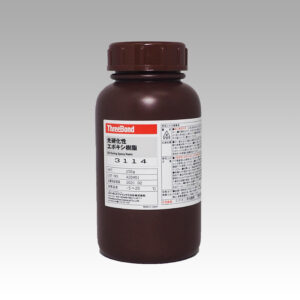
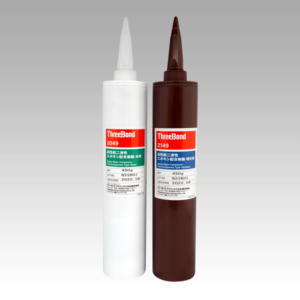
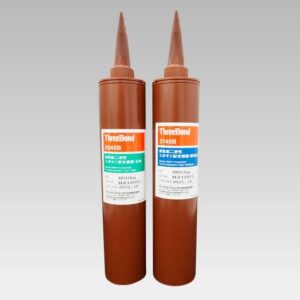
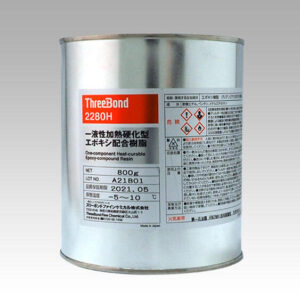



Post a comment